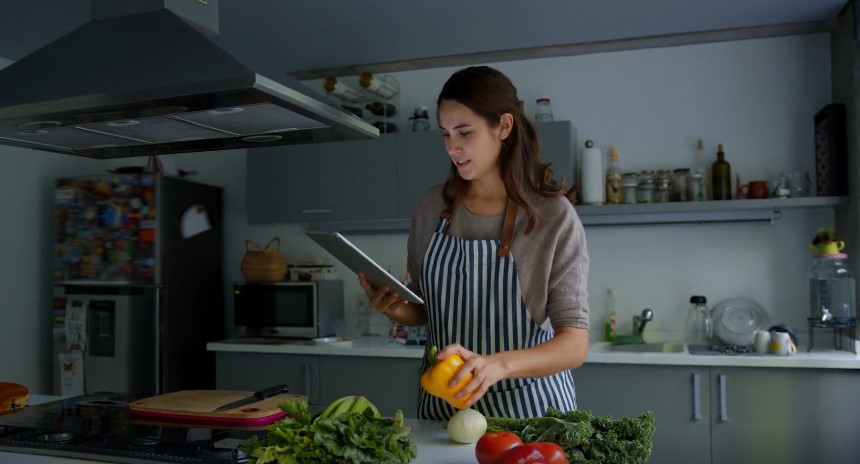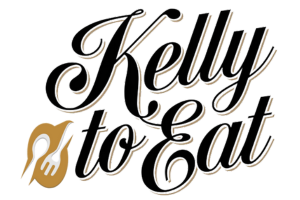People spend a lot of time scrolling through social media and random websites for new ideas about what to cook, how to shed a few pounds, or which vitamins promise an energy boost.
It feels natural to trust suggestions from influencers who look healthy, or bloggers with visually stunning smoothie bowls. But there’s a big question lurking in the background: how accurate is a lot of that chatter?
Plenty of findings from academic journals and expert discussions reveal a surprising amount of false or exaggerated claims out there. Many of those tips float around without much scientific evidence backing them up.
Let’s explore the maze of online nutrition advice, spot common pitfalls, and figure out a better way to sort the solid facts from the fluff.
A Swarm of Information—And Misinformation

The web has turned into a giant buffet of details on pretty much every food-related topic you can imagine, from keto meal prep hacks to miracle detox shakes.
The upside? People in remote areas or on tight schedules can quickly learn about nutrition. The downside? An avalanche of shaky tips and unsubstantiated claims.
With so much content circulating online, even identifying whether an article or tip was written by a human or generated by AI can be challenging. Tools like this ChatGPT detector can help spot AI-generated content, offering another layer of scrutiny for curious readers.
Research has found that about half of the nutrition claims they assessed were backed by little to no verifiable science. Weight loss advice and info about supplements landed at the top of the inaccurate list.
That means a lot of people might be sprinkling ground seeds into their morning oatmeal or chugging herbal shakes, simply because someone on the internet promised magical results without real proof.
Why is the quality so uneven? Sometimes it’s pure confusion. Food science can be tricky, and new studies appear every month.
The Social Media Echo Chamber
Popular platforms have revolutionized how people share thoughts on nutrition. Endless posts, tweets, and short video clips promise viewers an easy fix. But the quality of those tidbits can be all over the map.
A study on Research Gate that examined top Australian Instagram accounts revealed something pretty alarming: around 34.8% of the posts they sampled showed poor reliability, and 44.7% had factual inaccuracies. On top of that, brand-sponsored content often veers toward misleading promotion.
Videos on TikTok blow up fast. In a single morning, you might watch 15-second clips about how bone broth could cure practically every ailment under the sun or how you absolutely need 100 grams of protein daily—even if you’re only mildly active.
Experts frequently point out that many of those social media proclamations aren’t rooted in solid evidence. Yet, memes and catchy slogans spread like wildfire.
The Power of a Trending Hashtag
A hashtag can unite millions of viewers within hours. Some watchers latch onto popular ideas and share them without giving them much thought. Before long, thousands of others are stocking up on certain products, convinced they’re making an amazing health move. It creates a sort of “viral loop.”
Everyone’s watching and re-sharing, and very few pause to ask where that advice originally came from or if there’s any real data behind it.
How Hard Is It to Spot the Flaws?
Consumers often struggle to figure out if a self-proclaimed nutrition whiz knows their stuff. A survey found that half of Australians felt overwhelmed by all the conflicting tips out there. And it makes sense.
After all, one influencer might swear by a low-carb plan, another might call carbs completely harmless, and a third might talk up an all-juice cleanse. When legitimate dietitians or medical professionals weigh in, their nuanced explanations can look less appealing next to slick visuals and oversimplified claims.
Misinformation can be downright risky. People have reported experiencing side effects, malnutrition, or emotional distress from following misguided diet rules.
Sometimes, the bad advice is obvious, like an “all-fruit diet” that leads to nutrient deficiencies. Other times, the issues appear slowly, with unsuspecting people restricting certain foods to the point of disordered eating.
Huge Red Flags & How to Tell Something’s Off
Dr. Idrees Mughal, a medical doctor with a strong background in nutritional research, has outlined three glaring warning signs that should make anyone think twice about a piece of advice:
Absolute Language
Any tip full of sweeping words such as “best,” “always,” or “never” can be a tip-off. Bodies vary wildly. Humans come in different shapes, sizes, and metabolic rates, so no single diet or supplement magically works for everyone.
Quick Fixes
Buzzwords like “drop 10 pounds in 3 days” or “reverse a chronic condition overnight” can be huge red flags. Authentic health improvements tend to appear after consistent, long-term habit changes.
An ‘Us vs. Them’ Mindset
If someone tries to create mistrust around doctors or official health organizations, claiming they alone possess the real answers, that signals trouble. Always question motives when an individual tears down professionals to push a product or a fringe theory.
Psychological Quirks That Make Us Vulnerable

It isn’t always about being gullible. Human brains are wired in fascinating ways that can leave us open to dubious claims. People who have a high degree of openness to new experiences can be more likely to try an alternative remedy or a novel eating plan.
Narcissistic traits might push some to latch onto extreme diets that promise immediate weight loss, just to feed an ego-driven goal of looking better quickly.
Confirmation bias can also play a part. Once someone decides they like a particular form of eating—maybe a certain detox or a raw-food plan—any message that confirms their existing choice tends to resonate more, even if experts say that advice lacks scientific evidence.
Credentials Aren’t Just Letters After a Name
Some influencers really do put time into reviewing research and consulting professionals. But many rely on personal anecdotes or half-remembered facts. That doesn’t always mean ill intent. Some people are just excited to share what worked for them. The problem is, personal experience might not translate well to others who have different genetics, medical conditions, or lifestyles.
Sophie Morris, for example, is an Irish nutrition coach who became well-known by posting about ultra-processed foods. She gained a sizable following by highlighting practical ways to swap certain items for healthier alternatives.
Yet some dietitians critiqued her approach as too simplistic, pointing out that food science isn’t just about labeling certain items as pure good or pure bad.
Actual nutritionists and dietitians undergo rigorous training, peer reviews, and professional oversight. A random blogger or social media figure might be well-meaning but not have that formal background.
Real Consequences of Misinformation
View this post on Instagram
Falling for harmful claims can lead people down unhealthy paths, like someone tell you that you should eat undercooked potatoes. For instance, some adopt extremely restrictive plans that sideline entire food groups—think skipping carbs altogether or refusing all fat.
That might cause deficiencies in key nutrients, leaving the body short on energy or essential vitamins. There’s a real story in The Guardian about a person who became fixated on “clean eating” based on trendy internet posts, only to spiral into an eating disorder. The mental and physical toll took years to repair.
People who rely on unverified “miracle supplements” might also waste money or risk side effects. Unregulated pills can contain contaminants or incorrect dosages. That’s a gamble with one’s health. There’s a difference between adding a daily multivitamin that your doctor recommended and chasing random capsules someone hawks on a Facebook group.
Steps for Smarter Choices
It’s important to cut through the noise and pick out solid facts from unsubstantiated rumors. A few pointers can help:
1. Check the Source
University websites, government agencies, and respected health associations typically ground their advice in peer-reviewed data. Web addresses ending in .gov or .edu often indicate a reliable platform.
2. Assess Background and Training
See if the writer or speaker has degrees or certifications in nutrition, dietetics, or medicine. Self-taught individuals can share interesting stories, but official credentials show a deeper level of expertise.
3. Look for Research
Are there references to published findings in reputable journals? Do they rely on proven data or random anecdotes? Peer-reviewed studies usually carry more weight.
4. Stay Alert for Promotional Motives
Affiliate links, discount codes, or product partnerships aren’t automatically evil, but they can introduce biases. If someone is heavily pushing a product they profit from, it pays to be extra cautious.
5. Talk With Pros
Nothing beats a real chat with a licensed dietitian or a qualified healthcare provider. Personalized advice can help you find a plan that suits you best. Plus, experts factor in medical histories and real-world constraints.
Scrolling Less, Researching More

There’s something comforting about a short reel or a polished infographic that claims a special berry can speed up your metabolism. The quick promise of a new superfood can be tempting. However, chasing every new fad can be exhausting.
Sometimes the best move is to slow down and read an in-depth article or watch a webinar with a credible authority. That’s more boring than a viral video, but it tends to offer a clearer sense of how to maintain overall well-being.
A little research can go a long way. Rather than jumping on a diet because your coworker said it worked wonders, scan a few peer-reviewed papers or check out a recognized nutrition website. Then, if you decide to try it, monitor how your body responds and, if possible, loop in a professional for guidance.
Balancing Skepticism and Open-Mindedness
Nobody wants to be so cynical they reject every fresh idea. Food science evolves, and new data emerges all the time. Being curious is an advantage. But it’s wise to hold space for a dash of skepticism. The person with the loudest voice might not be the one with the best evidence.
Trusting your gut is helpful, but backing it up with science is even better. In an era where anyone can gain a huge following by posting a few catchy snippets, it’s on each of us to develop a sharper lens. Ask questions. Seek clarity. Consider contradictions. That process may feel time-consuming, but it protects our health.
Wrapping It Up
Online food tips are everywhere, and a good portion of them aren’t reliable. People looking for accurate insights can cut down the noise by checking credentials, reading real research, and ignoring extreme promises that sound too good to be true.
By probing a bit further and staying curious, anyone can pick the best path to healthier habits—rather than getting sucked in by flashy, misleading fads.
Staying well-informed doesn’t have to be overwhelming, and there are trustworthy dietitians, medical professionals, and academic resources to lean on. Just remember to pause before accepting the latest viral headline at face value. A little caution can make a huge difference in feeling better, eating well, and boosting long-term wellness.
Hi there, my name is Kelly Barlow and kellytoeat.com is my blog. Here, I write about various recipes I want to reccommend to readers.
I try to find the best possible recipes that can attract the attention of readers, and at the same time, I strive to write it in the most engaging manner possible.
When I was younger, I wanted to become a chef. Sadly, it wasn’t meant to be, but at the very least, I write about it.
